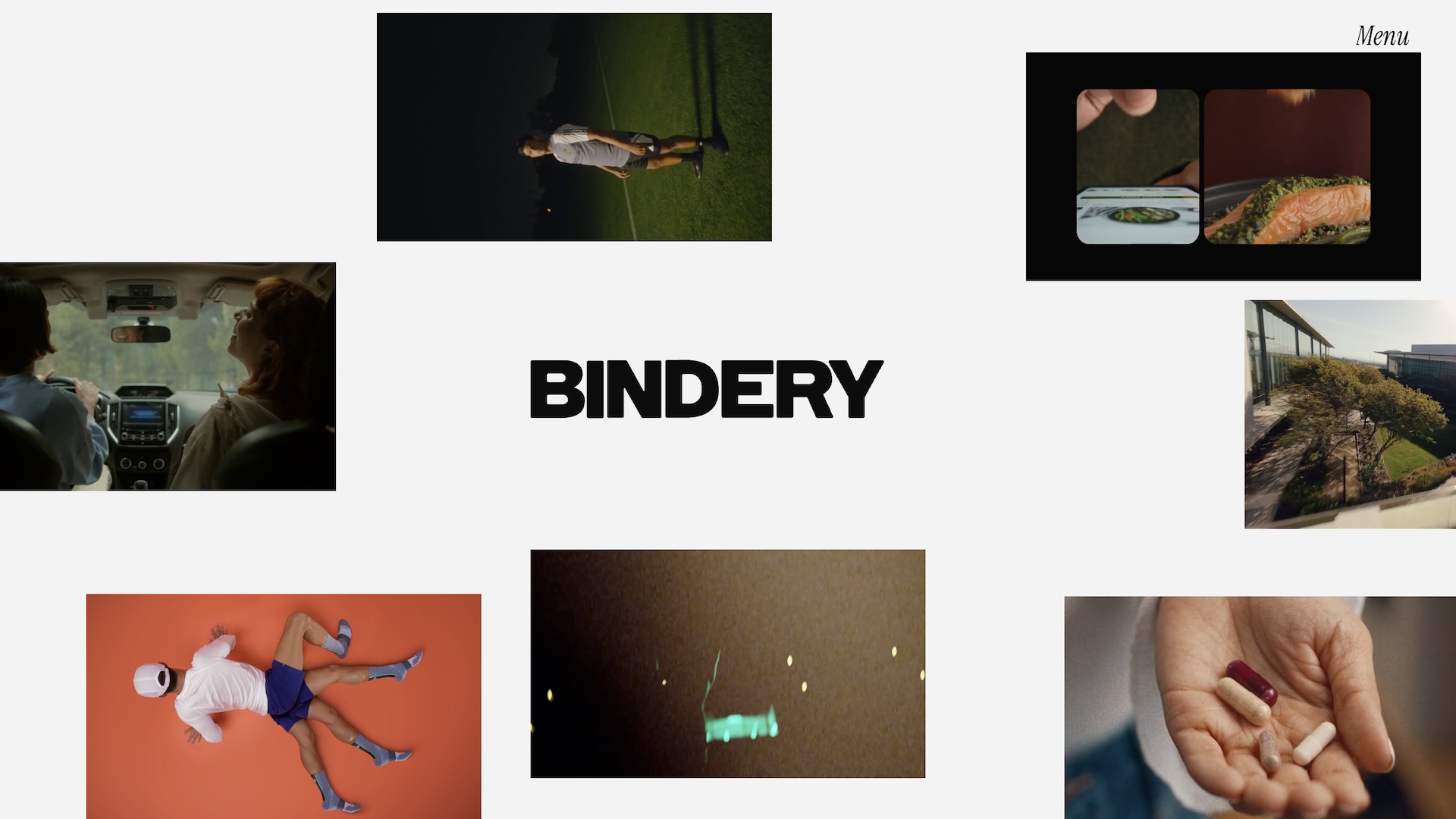Meet the world’s new unlikely superheroes
Indie artists lead the way as comics enter a new era of inclusivity.
Daily design news, reviews, how-tos and more, as picked by the editors.
You are now subscribed
Your newsletter sign-up was successful
Want to add more newsletters?

Five times a week
CreativeBloq
Your daily dose of creative inspiration: unmissable art, design and tech news, reviews, expert commentary and buying advice.

Once a week
By Design
The design newsletter from Creative Bloq, bringing you the latest news and inspiration from the worlds of graphic design, branding, typography and more.

Once a week
State of the Art
Our digital art newsletter is your go-to source for the latest news, trends, and inspiration from the worlds of art, illustration, 3D modelling, game design, animation, and beyond.

Seasonal (around events)
Brand Impact Awards
Make an impression. Sign up to learn more about this prestigious award scheme, which celebrates the best of branding.
The overweight teenager who’s bullied and teased, but shrugs it off with a laugh. The disabled reporter who remains dignified, even when a prominent politician mocks him. The transgender individual, humiliated by not being allowed to use a particular toilet. Or the Down’s syndrome child with a heart defect, who fights for life through multiple open-heart surgeries before the age of one. They’re all heroes – absolutely – but you’re unlikely to read their stories in comics.
Yes, there are blind and wheelchair-bound heroes. There are gay superheroes too, here and there. And the outsiders – orphans, mutants or anti-heroes – are well represented. Mainstream comics are becoming more diverse, but for some creators it’s not coming quickly enough. So they’re doing it themselves via indie publications that are both stunning and inspiring.
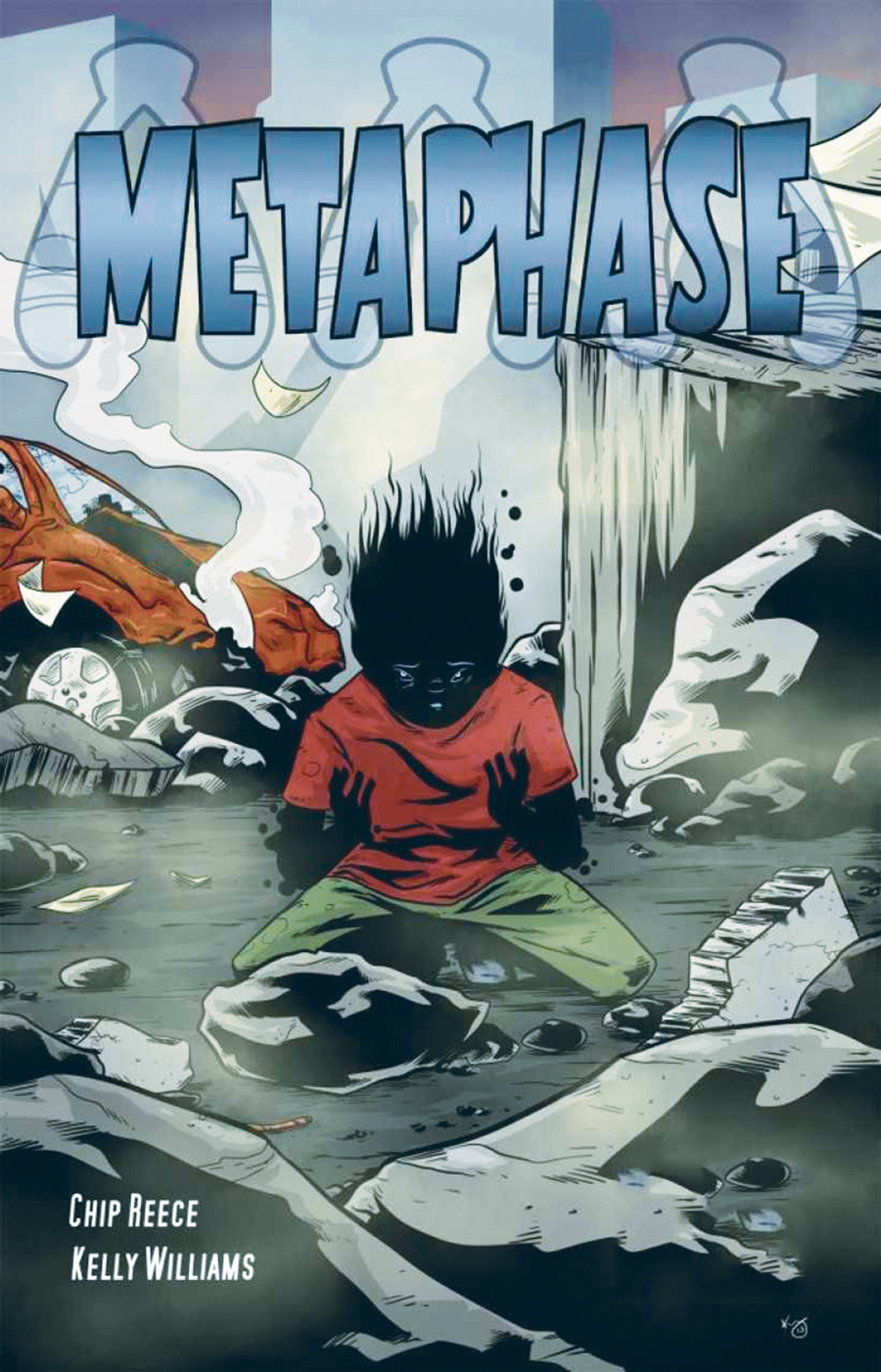
Metaphase is a great example. It was written by comic fanatic Chip Reece, whose son Ollie has Down’s syndrome (DS), and features a hero based on Reece’s young boy.
Dreaming big
“The comic idea came mostly from my wanting to eventually share my love of comics with Ollie, but then discovering that there were no characters with Down’s syndrome in the stories," Reece says. "I wanted my son to be able to see characters like himself doing amazing things, so he could dream just as big as I did as a kid.”
With a script for a 10-page teaser, Reece got artist Kelly Williams on board and eventually Peter Simeti at Alterna Comics agreed to publish it, with some funding coming via a Kickstarter campaign. Now anyone can buy it on Amazon.
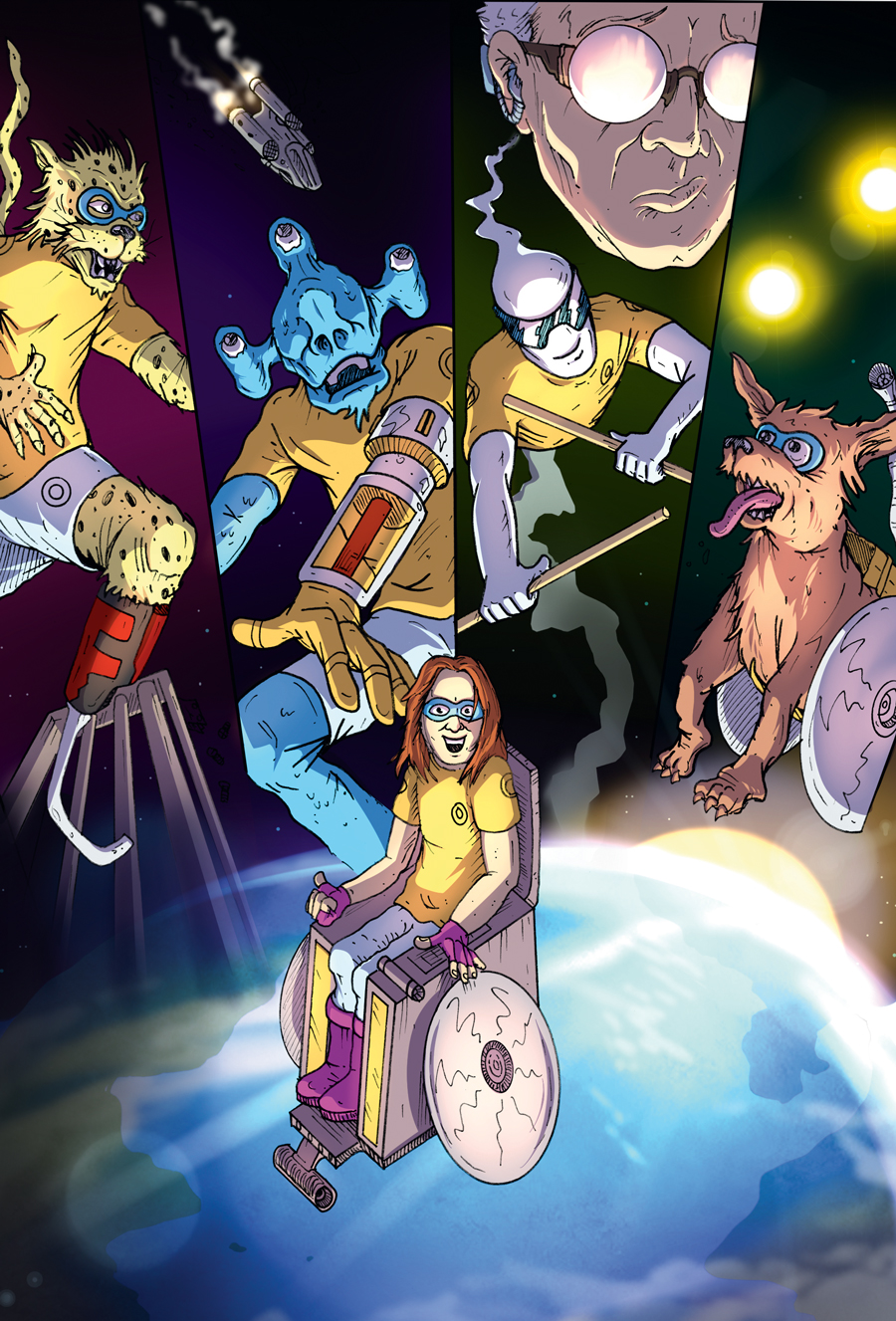
Dan White is another dad who saw the gap in what mainstream comics were offering. He developed Department of Ability (DoA) because he couldn’t find any wheelchair-using heroes that his daughter Emily could relate to. Like Ollie, she’s now the hero of a comic. The UK-based charities Scope and Strongbones support DoA, enabling White to write and draw it full time, while at the same time being a sort of inclusivity evangelist.
He shows the book to people all the time, taking feedback, and is inspired by Al Davison, a comic artist who suffers from spina bifida like Emily. “My skills have gone from fairly static and apprehensive in the ideas stage, to thinking ‘just go for it’ in the final page – disability very much in your face,” says White.
Daily design news, reviews, how-tos and more, as picked by the editors.
“Al Davison’s work, for instance on The Spiral Cage, has taught me that every page can feature a different style of panels and imagery without losing the hook and power of the story.”
It isn’t just parents with disabled children who are pushing the agenda. The indie publisher Aftershock has big ambitions for Alters, a new series featuring Charlie, who is transitioning to become Chalice, and at the same time becoming an Alter – a powerful hero to protect humanity.
Beyond a transgender story
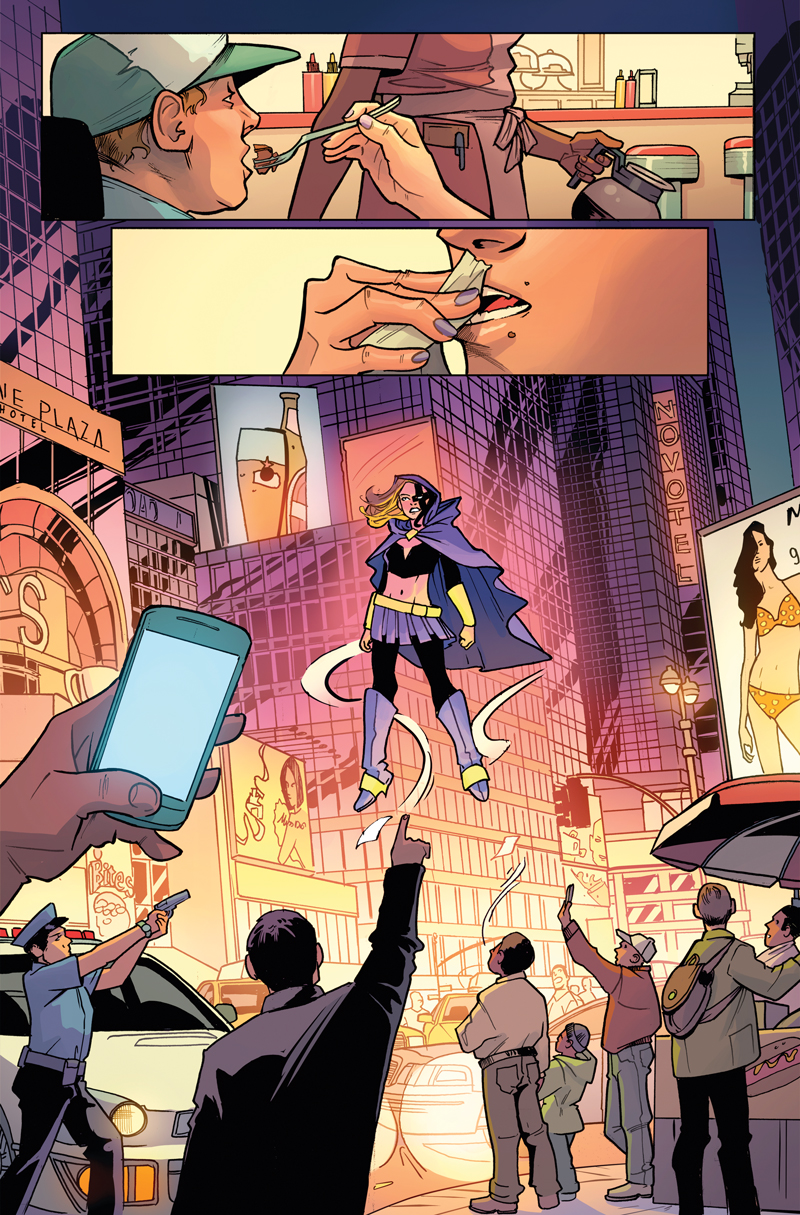
Italian artist Leila Leiz has been drawing the comic, which deals with subjects far beyond transgender issues. “We’re hoping to do stories about homelessness, mental and physical health, people dealing with difficulties in life such as job loss or mistreatment by society,” she says.
An inclusive team and a huge amount of research helps with the book’s brilliant execution. Leiz continues: “The entire creative team is made up of different genders and gender identities. Our colourist, for example, is a trans woman. Each of the scripts is read by at least five trans people, just to ensure we’re on the right path. But the less we make this about transgender rights and the more we make it about a character who happens to be trans, the more effective our story will be.”
If there's not a comic book out there yet that's doing what you want to see, then start creating yourself
Gavin Mitchell, The Pride artist
The Pride is a well-established indie comic created in Wales. It began eight years ago and aims to represent LGBTQ+ heroes as real, three-dimensional characters rather than stereotypes. Its writer is Joe Glass, who is tired of seeing queer characters introduced through a big coming-out story, before fading into the background. Glass’ noted that many gay characters are white men. There are few black ones, and bisexuals often turn out to be villains.
“My run on the artwork has a simple style, but it doesn’t mean that the real- world issues addressed in the comic have to be,” says Gavin Mitchell, one of the lead artists on The Pride. “Diversity was, and still is, an important part of the roster of heroes and The Pride is constantly expanding to include as many as it can. It’s a book that’s meant for everyone, so hopefully the art reflects that.”
Sizing it up
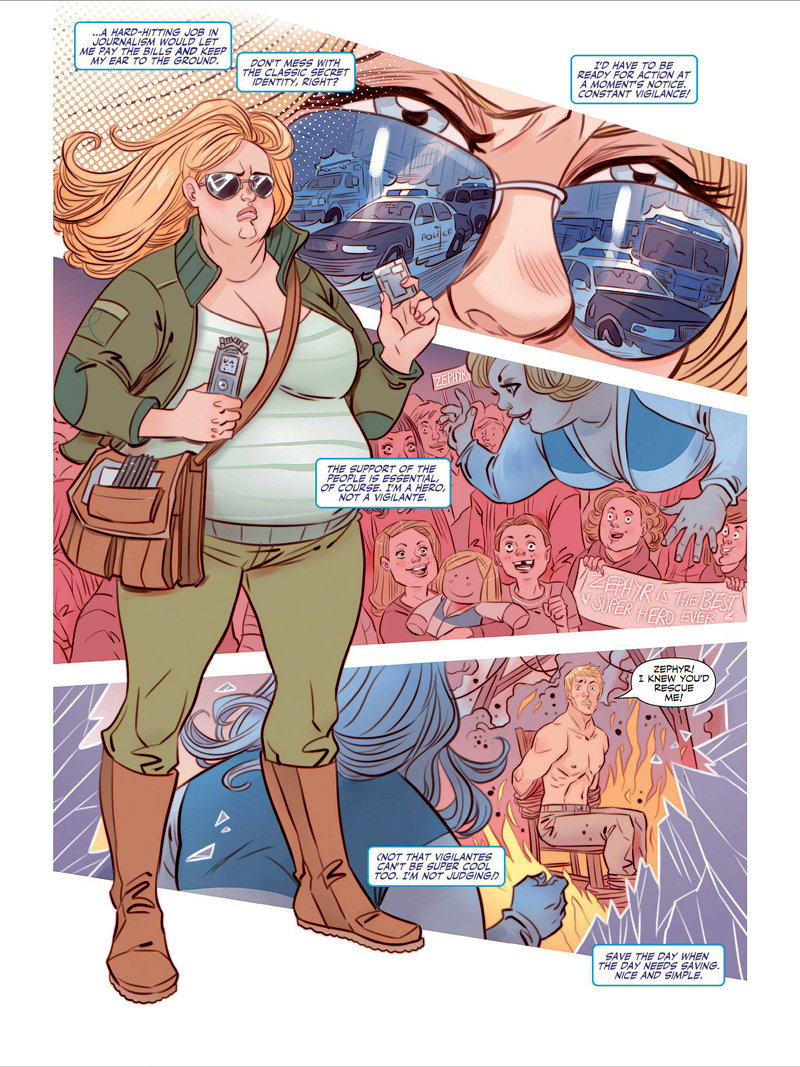
Over the generations, overweight characters in comics have tended to be victims, baddies or providers of comic relief. Not Faith, a hero who’s been around for 25 years in Valiant’s book Harbinger, but has only recently got her own series.
Originally drawn by Jim Shooter, today Montreal artist Marguerite Sauvage is on pencils and Faith received nominations for three industry awards last year.
Sauvage’s rendition of the character is intelligent, confident and beautiful. “She talks before fighting, she believes in redemption instead of revenge, and she’s positive and generous,” explains Sauvage. “That’s what I want to express through my drawing. Her body size is a part of this message of progress and tolerance. We challenge conventions and prejudice by showing a good example, like Faith would do.”
Mainstream comics are certainly changing, but as is often the case the indie publishers and self-publishers are sparking the real creativity when it comes to unlikely heroes. Gavin’s succinct advice chimes with what all the creators we spoke to told us: “If there’s not a book out there yet that’s doing what you want to see, then start creating yourself,” he says. “Comics are for everyone and can be created by anyone.”
This article was originally published in ImagineFX issue 146; buy it here.
Related articles:

Garrick Webster is a freelance copywriter and branding specialist. He’s worked with major renewable energy companies such as Ecotricity and the Green Britain Group, and has helped develop award-winning branding and packaging for several distilleries in the UK, the US and Australia. He’s a former editor of Computer Arts magazine and has been writing about design, creativity and technology since 1995.
